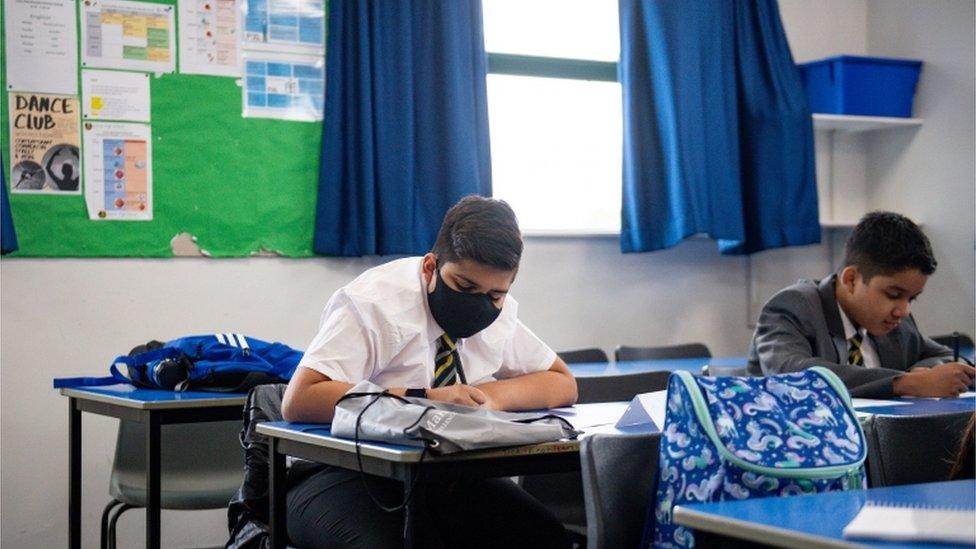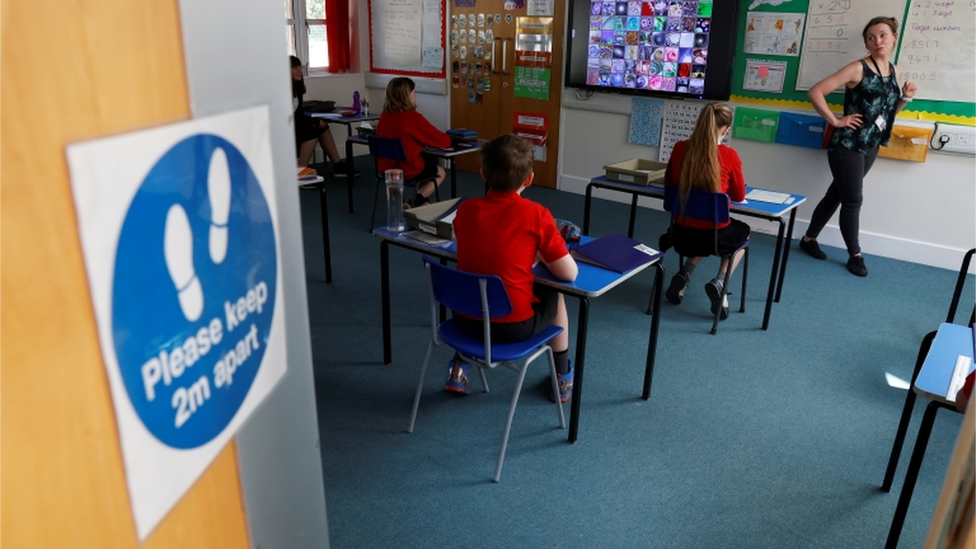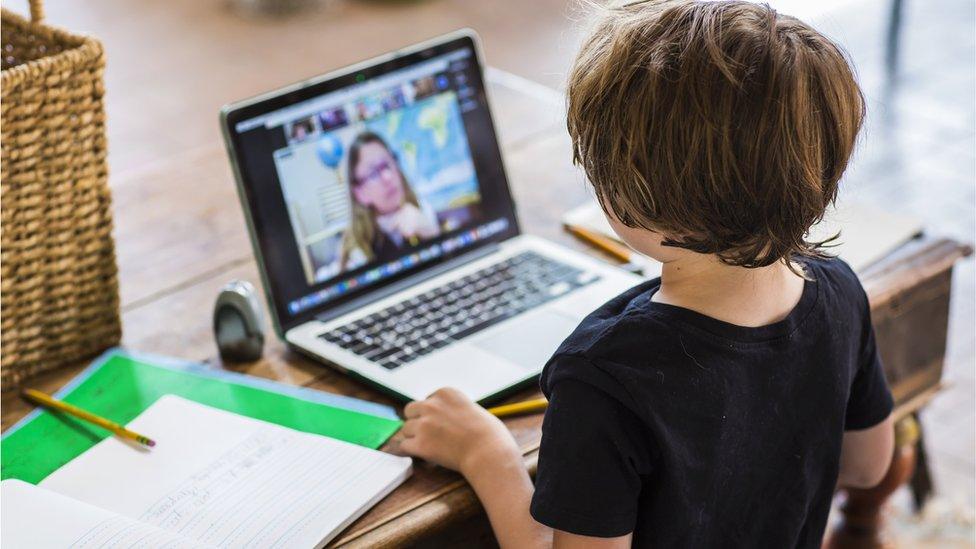Department for Education had no Covid plan, say MPs
- Published
- comments

A group of MPs has said that the Department for Education (DfE) had "no plan" to deal with the Covid pandemic.
A report by the Public Accounts Committee (PAC) says that the DfE struggled to react to events in a timely and effective way in England.
It says the failure to set standards for in-school and remote learning meant children "had very unequal experiences" during the pandemic.
In response, the DfE says it acted swiftly and provided extensive support.
The report says that despite being involved in a cross-government exercise in 2016 on dealing with a flu pandemic, the DfE was "unprepared" for the challenges of Covid-19.
It suggests there should be a thorough exercise to learn lessons from its early response.
Meg Hillier MP, chair of the PAC, said: "The committee was concerned that the DfE appears uninterested in learning lessons from earlier in the pandemic, preferring to wait until the public inquiry which won't report for years.
"It shows little energy and determination to ensure that its 'catch-up' offer is sufficient to undo the damage of the past 14 months."
The government is due to publish its recovery plan for pupils in England to catch up on the learning they have missed during the pandemic.
The PAC says evidence suggests the plans aimed at poorer pupils as part of the government's £1.7bn catch-up programme is failing to reach them.
It says the DfE "has worthy aspirations but little specific detail about how it will build the school system back better".
The disruption to schools had particularly damaging effects on vulnerable children such as those in care or with special education needs, the report highlights.
Although they were allowed to carry on going to school, the proportion of vulnerable children who actually attended remained below 11% until late May 2020, and only ever reached an average of 26%, by the end of the summer term.
And referrals to children's social care services fell by 15%, and remain 10% lower than last year - raising concerns about ongoing "hidden harm" to children, the report suggests.
'Ugly truth'
Previous research has shown a growing gap in achievement between poorer pupils and their more affluent classmates.
Ms Hillier said the pandemic has exposed "a very ugly truth" about the children living in poverty and disadvantage, who have been hit particularly hard during the pandemic.
Although the government has provided almost 1.3 million laptops and tablets to poorer pupils during the pandemic, Ms Hillier says: "Online learning was inaccessible to many children even in later lockdowns and there is no commitment to ongoing additional funding for IT.
"Schools will be expected to fund laptops out of their existing, and already squeezed, budgets."
Paul Whiteman, general secretary of head teachers' union NAHT, said the findings of this report are "extremely disappointing but not surprising".
"Throughout the pandemic, the DfE has been playing catch-up. The individual efforts of schools have almost always been quicker and better than anything centrally managed from Whitehall."
The NAHT has launched its own blueprint for school recovery, calling for "significant" new investment from the Treasury for recovery work to ensure the life chances of young people are not harmed at a critical time.
A DfE spokesperson said: "Throughout the pandemic we have acted swiftly at every turn to help minimise the impact on pupils' education and provide extensive support for schools, colleges and early years settings.
"The department has updated and strengthened its remote education expectations as best practice has developed and schools' capabilities have increased."
- Published13 May 2021

- Published17 March 2021
